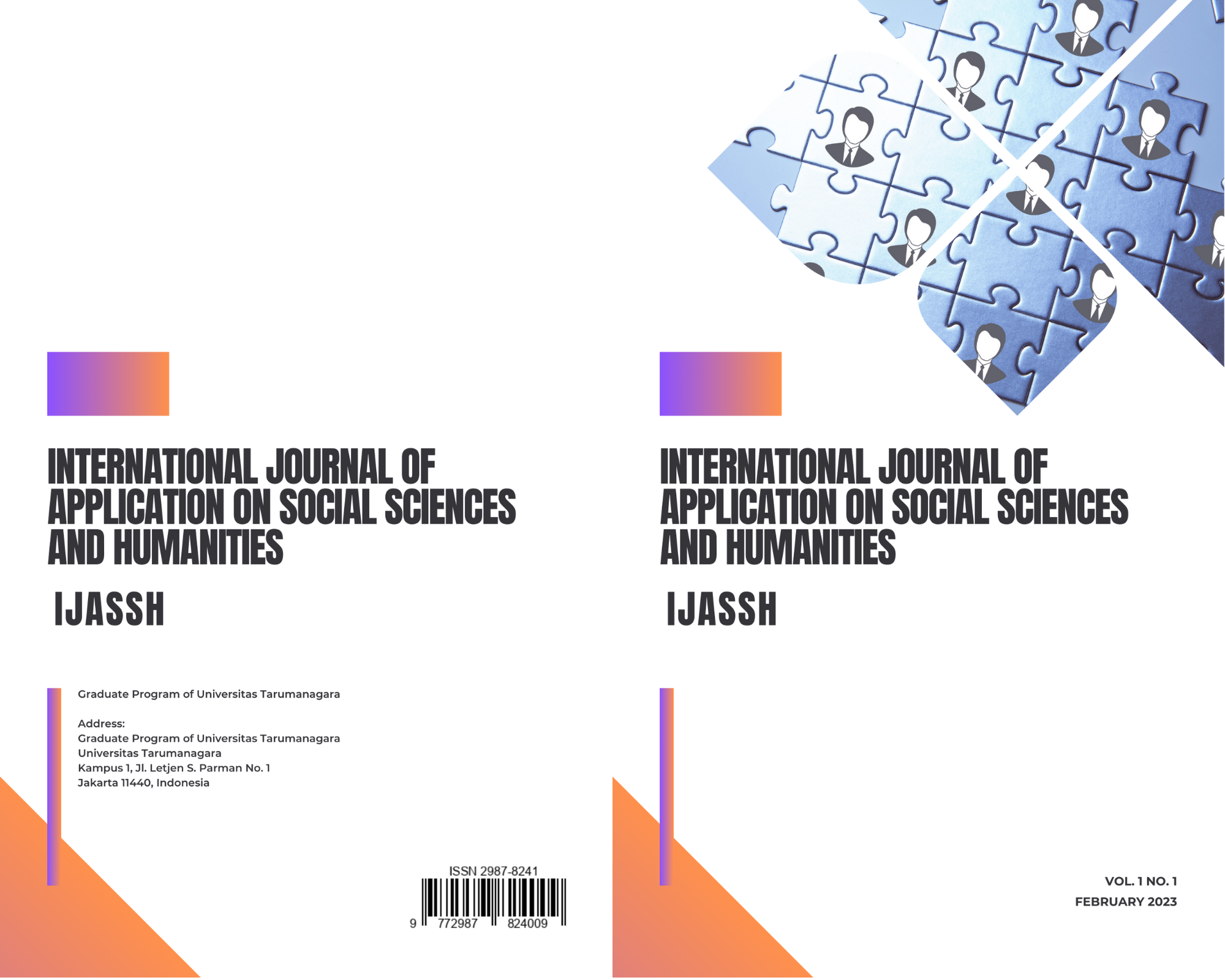THE ASSOCIATION OF QUALITATIVE JOB INSECURITY AND PSYCHOLOGICAL WELL-BEING (STUDY ON YOUNG ADULT EMPLOYEE IN DKI JAKARTA DURING COVID-19 PANDEMIC)
Main Article Content
Abstract
Qualitative job insecurity is a threat to job features, including salary reduction that increased during the COVID-19 pandemic. We predict that qualitative job insecurity has a significant correlation with psychological well-being. This study examines the relationship between qualitative job insecurity and psychological well-being during a COVID-19 pandemic involving 490 participants. This study used quantitative research methods and used convenience sampling techniques to obtain participants. This study was conducted by distributing questionnaires via google form using psychological well-being measuring tools [13] which include 32 items and Multidimensional Job Insecurity Questionnaire [4] which include 10 items qualitative job insecurity. Results showed a significant relationship between qualitative job insecurity and psychological well-being. Qualitative job insecurity is negatively related to enthusiasm and comfort, also qualitative job insecurity is positively related to anxiety and depression.
Article Details
Section

This work is licensed under a Creative Commons Attribution-NonCommercial-ShareAlike 4.0 International License.
References
A. Callea, A.L. Presti, S. Mauno, F. Urbini, The association of quantitative/qualitative job insecurity and well-being: The role of self-esteem, International Journal of Stress Management, 16(1) (2019) 46-56. DOI: 10.1037/str0000091
A. Chirumbolo, F. Urbini, A. Callea, Dimensionality, reliability and validity of a multidimensional job insecurity questionnaire: Preliminary findings in the Italian context, University of Rome. 37(1) (2020) 35-46. DOI: 10.13133/1974-4854/16722
Badan Pusat Statistik (2021, Mei 31). “Pengangguran terbuka menurut pendidikan tertinggi yang ditamatkan”. https://www.bps.go.id/statictable/2009/04/16/972/pengangguran-terbuka-menurut-pendidikan-tertinggi-yang-ditamatkan-1986---2021.html
C.D. Ryff, Happiness is everything, or is it? Explorations on the meaning of psychological well-being, Journal of Personality and Social Psychology, 57(6), (1989) 1069–1081. DOI: 10.1037/0022-3514.57.6.1069
J. Hellgren, M. Sverke, K. Isaksson, A two-dimensional approach to job insecurity: Consequences for employee attitudes and well-being, European Journal-of-Work-and-Organizational-Psychology.-8(2) (1999) 179-195. DOI:10.1080/135943299398311
L. Greenhalgh, Z. Rosenblatt, Job insecurity: Toward conceptual clarity, The Academy of Management Review. 9(3) (1984) 438-448. DOI:10.2307/258284
P. Warr, A study of psychological well-being, British Journal of Psychology. 69(1) (1978) 111-121. DOI: 10.1111/j.2044-8295.1978.tb01638.x
P. Warr, How to think about and measure psychological well-being. Research Methods in Occupational Health Psychology. New York, 2012.
R. Lazarus, S. Folkman, Transactional theory and research on emotions and coping. European Journal of Personality, 1(3) (1987). DOI: 10.1002%2Fper.2410010304
R.A. Halim, V.A. Gozali, C. Laurenia, J. Eliana, S. Sharon, F.I.R. Dewi, Ways to cope depression during Covid-19 pandemic, in: Proceedings of the 3rd Tarumanagara International Conference on the Applications of Social Sciences and Humanities (TICASH), Atlantis Press, Jakarta, Indonesia, 2021, pp. 1974-1977. DOI: https://doi.org/10.2991/assehr.k.220404.323
R.M. Ngadi, A.P. Yanti, Dampak pandemi covid-19 terhadap phk dan pendapatan pekerja di Indonesia, Jurnal Kependudukan Indonesia, (2020) 43-48. DOI: https://doi.org/10.14203/jki.v0i0.576
S.J. Ashford, C. Lee, P. Bobko, Content, causes, and consequences of job insecurity: A theory-based measure and substantive test, Academy of Management Journal. 31(4) (1989) 803-829. DOI: https://doi.org/10.2307/256569
T. M. Purba, P. T. Y. S. Suyasa, Pengaruh rasa tidak aman bekerja terhadap subjective well-being dan kualitas tidur dengan job embeddedness sebagai moderator. Jurnal Muara Ilmu Sosial, Humaniora, dan Seni, 3(1) (2019) 84-93.
World Health Organization. (2020a). “Media statement on confirmed COVID-19 cases”.-https://www.who.int/indonesia/news/detail/02-03-2020-media-statement-on-covid-19
World Health Organization. (2020b). “Coronavirus disease 2019 (COVID-19) situation report-1”.https://cdn.who.int/media/docs/default-source/searo/indonesia/covid19/who-indonesia-situation-report-1.pdf?sfvrsn=6be5b359_0
World O Meter. (2022). “Total coronavirus cases in Indonesia”. https://www.worldometers.info/coronavirus/country/indonesia/

